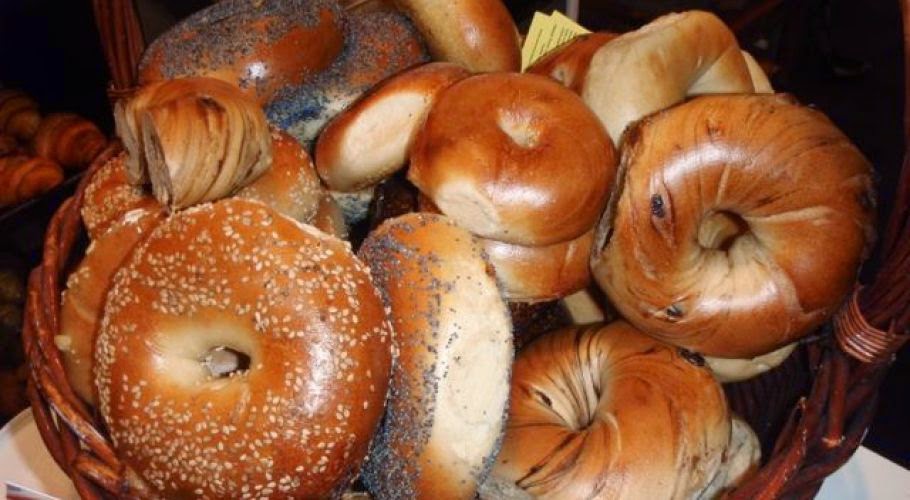The Secret to Creating a NY Bagel
Many bagel enthusiasts will tell you that you can't get a great bagel outside of New York. They'll say it's the water that makes it so unique. But, is it really the water? The short answer is no. While water chemistry does influence the baking process making them soft and chewy, it's the production that is the real hero. New York City water is unique in that is is very soft compared to other big cities. Water hardness enhances the strength of the gluten, the protein compound that toughens baked goods. This explains why bagels outside of New York are tougher and harder to chew.Far more influential is the production process of bagels. NY bagel shops typically boil the bagels before baking them in the oven. The bagels are placed in a big kettle of simmering water for a few minutes before entering the dry, hot oven. This makes the chewy interior of the bagel and also slightly changes the flavor profile. Some bagel places skip this process. The boiling kettle is very expensive and large so they will brush the bagels with a little water and some baking soda. Then they will blast them with steam once they are in the oven. You can tell a bagel hasn't been boiled if the bottom is darker and tougher than the rest of the surface. This is because the steam cannot get to the bottom of the bagel on it is placed in the oven. It's essentially a roll with a hole.
Another secret to the great NY bagel is the fermentation process. The dough is allowed to ferment slowly in wooden containers for hours. This process allows the yeast to produce many different flavor compounds. These also not only permeate the dough, but they also seep into the wood used giving the final product a unique flavor that cannot be replicated by newer bakeries.
Have a question about this? feel free to drop us a line here.
